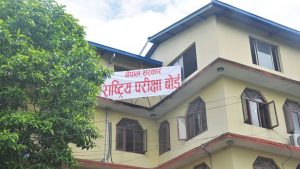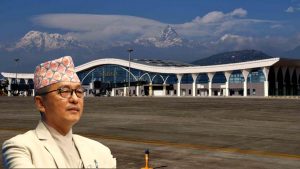
Chinese Criminal Gangs Hold Approximately 1,000 Nepali Hostages in Myanmar
Disturbing reports have emerged revealing that nearly 1,000 Nepali individuals, lured to Myanmar with promises of lucrative jobs, are being held captive by Chinese criminal groups. These victims, subjected to months of captivity and brutal torture, have pleaded with the government for their rescue.
Families of the hostages have expressed their distress, stating that despite numerous pleas for rescue, the government has shown little interest in their plight. The severity of the situation came to light recently when victims began reporting extreme torture, including the use of electric shocks, to both the police and the Ministry of Foreign Affairs.
The captives are being held in a clandestine criminal camp run by Chinese operators in the city of Myawaddy located approximately 350 kilometers from Myanmar’s capital. These criminal groups engage in online fraud activities, exploiting the hostages for their illicit operations. Victims have disclosed that failure to participate in the scams results in severe electric shock torture. Furthermore, the Chinese criminals demand exorbitant ransoms from those attempting to escape. While some individuals have managed to secure their release by paying the ransom, others remain trapped, awaiting rescue.
Six individuals recently returned to Kathmandu after paying the ransom, with four arriving last Friday and two on Sunday. They promptly filed complaints with the Human Trafficking Investigation Bureau, leading to the subsequent arrest of two individuals, including a Chinese national, who are currently under investigation.
SSP Jeevan Shrestha of the Human Trafficking Bureau confirmed that the bureau has received rescue requests for only 13 people from Myanmar. However, sources indicate that approximately 1,000 Nepalis have fallen victim to the Chinese criminal syndicates. The bureau has taken the initiative to coordinate with relevant authorities for their rescue, acknowledging the gravity of the situation. An investigation is also underway in Nepal to identify and apprehend those involved in the trafficking network.
According to SSP Shrestha, families of the 13 hostages recently applied for rescue, prompting the bureau to liaise with relevant agencies. “We have taken the initiative to rescue them and have corresponded with the relevant agencies; it is understood that the problem is dire,” he stated.
Chinese citizen Liang Jun, involved in human trafficking, was arrested by the bureau on July 12, while Sunita Nepali was apprehended on Tuesday. Victims have been reporting these incidents to the police for over a year, informing them of the Chinese groups’ modus operandi involving online scams and hostage-taking. Some victims managed to return to Nepal after paying ransoms, while others have desperately pleaded for government intervention.
Relatives of one victim expressed their frustration, stating that despite months of contacting the Nepali Embassy in Myanmar, they received no assistance, as the area where the hostages are held is allegedly controlled by rebels. The victims reported being denied the use of mobile phones and enduring prolonged periods of captivity and exploitation.
Nepali embassy officials cited the challenging circumstances, including the presence of a military regime in Myanmar and rebel influence in the location of the Chinese camp, as reasons for the government’s inability to rescue the hostages. Other nations, such as India, have successfully rescued their citizens from the same area. Unfortunately, the Nepali government has been unable to secure the release of its citizens.
According to one of the recently returned victims, approximately 60 Nepalis are present in their specific company, with dozens more spread across similar operations. Most of the victims arrived in Myanmar between November and January. Over the past couple of months, they have fervently sought government assistance for their rescue.
The victims were deceived into believing they were being taken to Thailand for computer-related jobs. Some were flown to Myanmar, while others were transported by car from Bangkok. Upon arrival, they were coerced into assuming female identities and engaging in online chats with unsuspecting American citizens, ultimately tricking them into making financial investments. Additionally, some Russian women were held in reserve for video chat purposes.
Victims who succeeded in scamming individuals were compensated, while those unable to do so endured various forms of torture, including electric shocks. Chinese operators confiscated their passports and restricted their mobile phone use to once per day. SSP Shrestha described the victims’ ordeal, stating, “According to the victims, the Chinese kept them there as a form of modern-day slavery.”
The hostages are confined within a compound and forced to engage in illegal activities. A victim who returned on Sunday attested that escape was virtually impossible. The Chinese gangs also forced the victims to pay ransoms through illicit means.
The individual who returned on Sunday had left his job in a microfinance company in Nepal and traveled to Myanmar. Initially, he earned around two hundred thousand rupees (Nepali currency) within the first two months. However, once the Chinese gang took him hostage, the torture began. After four months passed without government intervention, he was coerced into paying a ransom of approximately one million rupees to secure his release. Sunita Nepali, who facilitated his involvement with the Chinese gang, was arrested by the police on Tuesday.
Most of the victims hailed from economically disadvantaged backgrounds and were unable to afford the demanded ransoms. An elderly man from Nuwakot, appearing at the Human Trafficking Investigation Bureau’s office in Babarmahal on Tuesday, beseeched the police to rescue his son. Wearing tattered sandals, he expressed his financial constraints, stating, “I don’t have money for lunch, how can I pay a ransom of lakhs (hundreds of thousands) to the fathers? I had to rescue my son at any cost.”
It is worth noting that Chinese gangs have been involved in trafficking Nepalis in other countries as well, including Laos and Cambodia. Some Nepali hostages have been rescued in Laos, while arrests have been made in connection with trafficking cases. Similar criminal activities have also been reported in Cambodia, where Nepalis have been taken on visit visas and held captive for illegal work.
The Nepali government, through the Human Trafficking Investigation Bureau, has made efforts to address these issues, but challenges persist due to the political landscape and rebel influence in certain areas. Chinese criminal networks continue to exploit vulnerable individuals, engaging in online fraud operations across multiple countries.













Comments